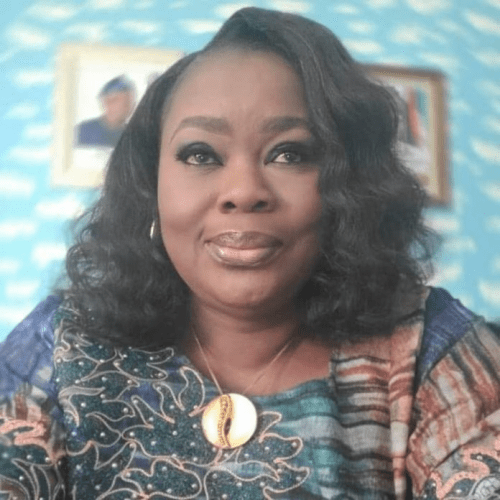(Published in the Nigerian Tribune on Monday, 27 March, 2023)
“The ides of March are come,” Shakespeare’s Julius Caesar says in utter derision and dismissal of a life-and-death warning. And the soothsayer replies “Ay, Caesar; but not gone.” And truly, they were not gone. The 2023 elections should be over by now but they are not. There are people everywhere mocking poets and prophets. Clouds of uncertainty are hanging. Even our president has had to issue a statement denying saying in secret that he won’t hand over to his victorious Khalifa. There are threats of protests and counter-threats of arrest over the process and the outcome of the presidential election held over a month ago. Labour Party’s vice presidential candidate vowed on national TV that the president-elect won’t be sworn in; the election winner replied with a vow to arrest and lock up Labour and its symbols even before he is sworn in. There was a dream: What does it mean to have flood in dry land? You sleep and see two hundred elephants clinking tusks; you also see two hundred buffalos pooling together four hundred horns. If the inner eye is still seeing, you will know that the world is shifting and drifting – or about to. Confusion and chaos are ingredients of war and they appear afoot. Since that is the case, what I look for now are streaks of hope, to keep my sanity.
My ancestors in Old Oyo said with pride – and even arrogance – that they were different from other species in the specificity of their character and characteristics. “You can only hear of Oyo imitators; Oyo does not imitate anybody.” Their neighbours never liked hearing that from them but they never stopped acting it and shouting it from their rooftops. The 2023 elections may not be over in Abuja and in other states but the governorship election is over in Oyo State and that is where I hang my consolation and escape from Nigeria’s current madness. There was an election to elect the governor of Oyo State on Saturday, March 18. INEC announced a winner and everyone who fought the victor immediately dropped the sword and embraced the victorious. I found that to be very strange in rancorous Nigeria. If you know any other state in Nigeria where that has happened, please tell me. There is even no imitator. But why?
I read a cartoon in a national newspaper when I was in secondary school. The newspaper I cannot remember, but the cartoon and its caption I cannot ever forget: A former president, Nnamdi Azikiwe, is shown counseling a victorious young politician on power and its ephemerality. “My son,” the ex-leader says with sadness, “I have been to the mountaintop; it is quite slippery there.” What makes the mountaintop that slippery? Because I work and live in Ibadan, three days to the March 18 governorship election in Oyo State, a senior newspaper editor in Lagos sent me a text: “What are the chances of the incumbent?” I replied that “the man respects the people and has done well all round, so, he will win with more than 60 percent of the votes.” He kept quiet and left me with my “unrealistic projection.” After the results were announced on Sunday 19th, that editor sent me another text: “You said so. He won. Great. I was scared for him.” I replied with the smile emoji and added that the winner “did not leave the street for a day”; he knew the terrain and served it and so could not have slipped on Election Day.
Eleven incumbent governors contested elections to retain their seats for four more years; one of them lost and has been very quiet; another is still fighting to breathe; eight won with a lot of panting and limping back home from the battlefield; the man in Oyo has been congratulated by all his opponents. So, what made the re-election way smooth for one and bumpy for others? There was a 14th century Islamic scholar called Ibn Khaldun, author of the Muqaddimah. Some scholars say he was the greatest social scientist of the Middle Ages; others say he was “the father of historiography, sociology, economics, and demography studies.” Ibn Khaldun propounded a theory of leadership which states how leaders emerge through blood ties and group feelings. He calls that process Asabiyyah. But it is not enough for a leader to emerge; how about sustenance of that leadership? It is that sustenance that presidents and governors seek in the name of second term ambitions. But not all who seek to stand stand. Why is the mountaintop slippery? Ibn Khaldun had an answer. He came up with a list of what he called the personal qualities of a leader – the “perfecting details” that sustain leadership. What are those details? He said they include “generosity, forgiveness of error, patience and perseverance, hospitality towards guests, maintenance of the indigent, patience in unpleasant situations, execution of commitments, respect for the religious law, reverence for old men and teachers, fairness, meekness, consideration to the needs of followers, adherence to the obligations of religious laws, and avoidance of deception and fraud.” (See Ibn Khaldun of North Africa: An AD 1377 Theory of Leadership (2008) by Yusuf Sidani).
The man who wrote the list above died on 17 March, 1406; that was 617 years ago. Now, look at the menu again. Which of the “details” is not desirable in a leader today, six centuries after the theorizer died? Do you think a man would have those attributes and be rejected by his people? Which of the items there was not demanded by voters in the last election? My people say that what money cannot buy, good character (ìwà rere) will get for you free of charge. Father of contemporary Yoruba theatre, Chief Hubert Ogunde, in one of his songs, prayed to his Maker to give him a good head and a pair of good legs. Bí mo l’órí ire, Elédàá, jé kí nl’ésè ire. Luck makes some people leaders, but their lack of character soon destroys their good heads. Every Ibn Khaldun perfecting detail you read above was a factor in the last election in every state across the country. The fewer a contestant had in his basket, the more difficult it was for the people to embrace him. That was why some lost their deposit in that election and some others had to break into the strong room of the people’s mandate by altering result sheets and robbing the law of its teeth. Some resorted to buying or breaking voters; some had to kill and maim to force in their win – something armed robbers do and get shot for.
I do not know who gave Oyo State its “Pacesetter” appellation; neither do I know the composer of its vaunting anthem that proclaims it as the Asiwaju of Nigerian states. But I know it has provided leadership in the 2023 election with the post-election conduct of its leaders across all parties. Nigeria should ask questions and learn from that state and how its governor calmly got a second term. The incumbent got all the critical divides at his back on Election Day; and this included those who voted for Peter Obi on February 25. The Igbo who voted in Oyo shouted ‘Nwanne’ while counting the votes of the incumbent – I watched a video clip. For once, we found a needle and a thread to suture the ruptured tendons of Nigeria in the little corner of that state. The incumbent governor, Mr Seyi Makinde, won; his main challengers, Senator Teslim Folarin of the APC and Adebayo Adelabu of Accord party wasted no time before congratulating him. Their powerful backers did the same. I saw grace and poise in the winner embracing the defeated; I saw dignity in the losers knowing when to apply the brakes by hugging the man who leveled them. Brazilian novelist, Paulo Coelho, once wrote that “it is always important to know when something has reached its end. Closing circles, shutting doors, finishing chapters, it doesn’t matter what we call it; what matters is to leave in the past those moments in life that are over.” Those who drew the curtain in Oyo State did so after a thorough review of the process and the outcome. They were apparently satisfied that they truly lost and were honourable enough to move on. If there was a theft, the owner definitely won’t congratulate the winner. In other states and at the federal level, circles are still unclosed and doors of electoral acrimony are still ajar. We should understand. It cannot be over where justice suffered violence and where justice has served only the powerful. William Shakespeare says in King Lear that “nothing can come of nothing.” That is why we hear cries of plots and counterplots towards May 29, 2023. And, in several states, the dust of war is still up and blinding; swords remain unsheathed as the campaigns appear moving to the Philippi – the spot where noble Brutus and the ghost of Caesar fought their last battle.
This country is like the ouroboros, serpent eating its own tail; a dragon continually devouring itself. Ancient Egypt created the myth and its symbol and passed them to Ancient Greece. Centuries later, the Norse created a myth of their own serpent, the Jörmungandr, and got it to encircle the world with its tail in its mouth. The president-elect has that self-constricting emblem on his cap. It is an endless twerk of creation and destruction. Contests for power in Nigeria forever move on like that, slithering and serpentine and encircling. That is why the inferno of an election lit over a month ago is still burning. It is the reason there won’t be an end to the confusion of Nigeria with its drama plots and sub-plots driven by ethnic and religious baits. Baiters are persons who intentionally make someone angry. They are out trying to tie the forehead furs of the Igbo tiger to the occipital hairs of the Yoruba lion. We saw them in some southern states, but I refer here to excusers of criminality in the Arewa Consultative Forum (ACF) who at the weekend tried to smuggle their habitual defence of criminal herdsmen into the crisis of this election season. The ACF issued a statement on the political tension in the South, mocking the East, deriding the West; it then veered off to valorize banditry and terrorism. It claimed there was no evidence linking their bandits to killings and kidnappings in southern forests. This is what the ACF wrote: “In the wake of the ethnic crisis, Yoruba and Igbo partisans freely profile one another and accuse themselves of criminal conduct, including as cheats, bandits, kidnappers, land-grabbers, etc.” That list of insults is a concoction from the ACF. The rhetoric down south is bad, very bad, but it has not reached the level itemized by the northern mouthpiece. The ACF did not stop there; it doubled down with an errant defence of its bandits: “Ironically, ethnic profiling and accusations of criminality without evidence have always been levelled against hapless northerners, especially the so-called herders or economic migrants, by the South and mostly supported by the press. They stigmatised northerners, convicting them for offences they know nothing about. Northerners were forced to live under the shadow of guilt and criminality without trial. Perpetrators of these injustices couldn’t have known that a day such as this would come when they will inflict injustice not on northerners but against one another.” Imagine that! What are we saying, what are they saying? Do not blame them for the watery gbègìrì; blame the thieving goat that ate the southern beans. Was it not Mamman Vatsa who warned that the day you start mocking yourself, others will join you? We will keep engaging them until Nigeria is weaned of snakes and predators; they will not prevail.
















